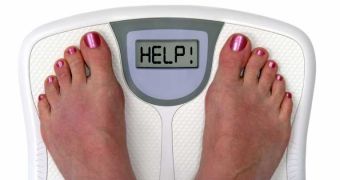In the US, obesity is no longer viewed as a health problem. Granted, nobody ever said that it was not a major health problem, but few ever dared to refer to it as more than that.
However, things are about to change. Not to beat about the bush, it was only this past Tuesday when members of the American Medical Association (AMA, for short) took part in a meeting in Chicago and decided that obesity had to be classified as a disease.
This decision has long been expected by obesity experts, who have been going on and on for several years now about how obesity should get just as much medical attention and insurance coverage as other conditions.
“Recognizing obesity as a disease will help change the way the medical community tackles this complex issue that affects approximately one in three Americans,” AMA board member Patrice Harris offered as an explanation for the Association's decision to label obesity as a disease.
USA Today reports that, according to several studies, over 30% of the country's adult population presently classifies as obese.
Unless measures are taken, odds are that 42% of Americans will be obese by the year 2030 at the latest.
What is even more worrying is that numerous children and teens also weigh significantly more than they should. More precisely, about a third of them have been documented to be either overweight or obese.
Both adults and youth that pack a tad too many pounds have increased risk for diabetes, heart disease, several types of cancer and other conditions because of their weight.
Now that obesity has been classified as a disease, specialists hope that people will have better chances of getting appropriate treatment and help in overcoming their condition.
“The American Medical Association's recognition that obesity is a disease carries a lot of clout. The most important aspect of the AMA decision is that the AMA is a respected representative of American medicine.”
“Their opinion can influence policy makers who are in a position to do more to support interventions and research to prevent and treat obesity,” stated Samuel Klein, the current director of the Center for Human Nutrition at Washington University School of Medicine in St. Louis.

 14 DAY TRIAL //
14 DAY TRIAL //